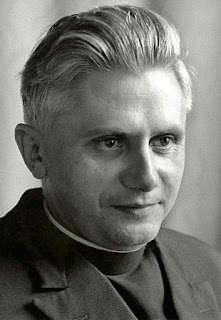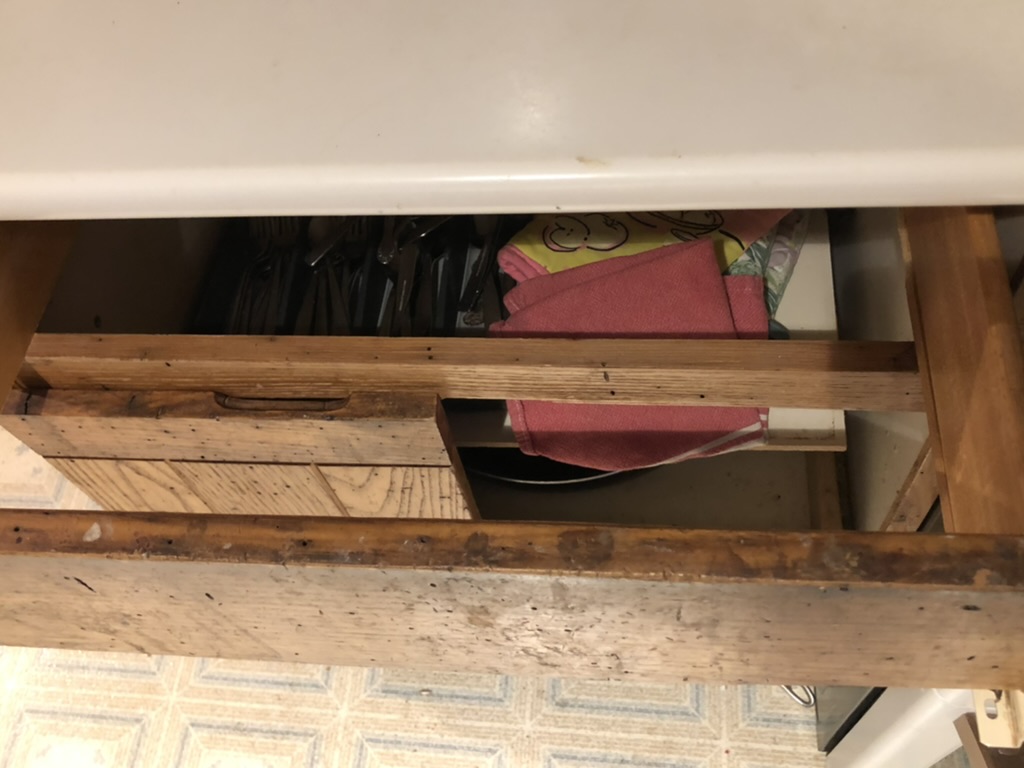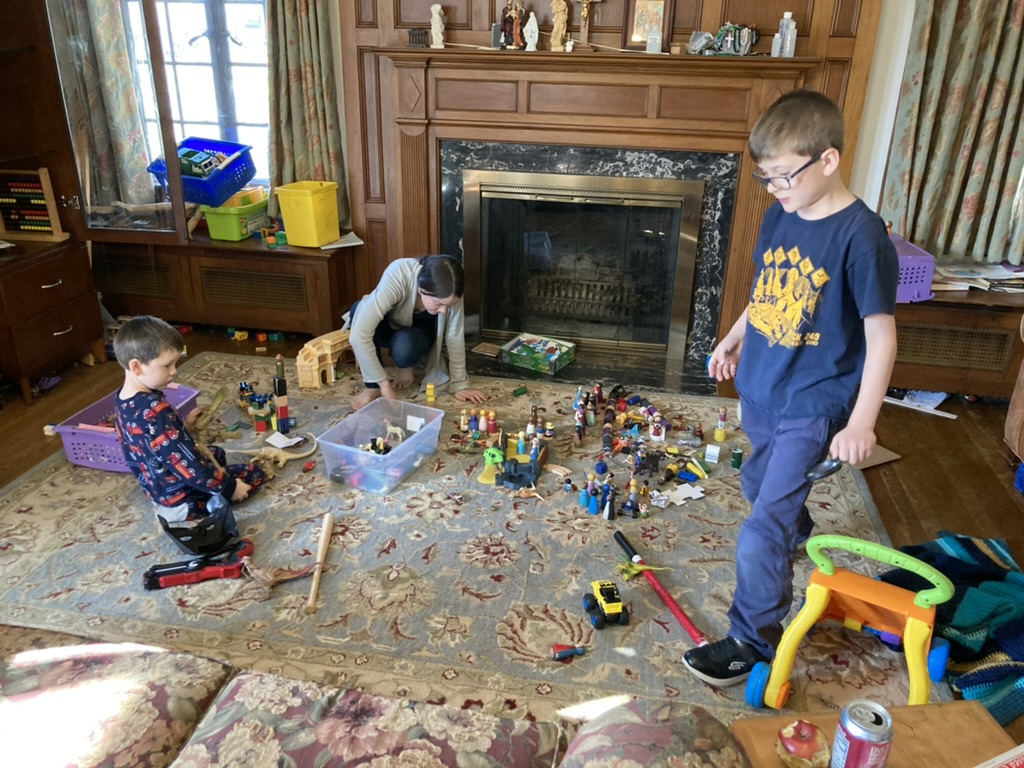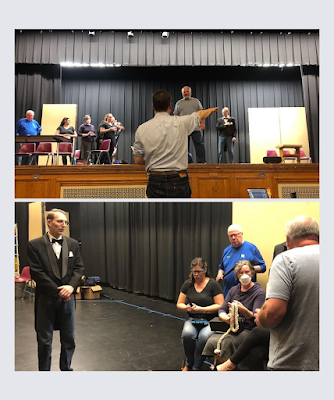Although the show itself has been unsatisfying in many respects, discussing Rings of Power has been quite an enjoyable pastime for us lately. Brandon provides a very good breakdown of the show's strengths and weaknesses based on the Aristotelian elements (Plot, Character, Thought, Diction, Melody, and Spectacle) which is worth your time.
MrsDarwin and I have been re-reading the Silmarillion and the Unfinished Tales, both seeking a corrective and also discussing amongst ourselves how a prestige TV series based on the Second Age of Middle Earth, and with a plot similar to what the series has provided might have been done more successfully.

Aside from having a more clear and fast moving plot (it's rather shocking in terms of writing that we are five episodes into an eight episode season and the series plot is only now slowly coming into shape, while the individual episodes themselves do not tend to have a satisfying plot and resolution of their own) my premise here is that the changes the series would most need would be in the themes which drive the Elven and Numenorian parts of the story, and in particular those which drive Galadriel. Morfydd Clark is certainly giving the role her skill, but the writing she's being given doesn't give her much to work with, and it just doesn't seem to fit with a character who is one of the oldest and most powerful elves in Middle Earth at the time of the story.
The series begins (as did the movie of Fellowship of the Ring) with a voiceover flashback narrated by Galadriel. This is a good way to start the series, but the one which the show runners provided is oddly muddled in theme. How might a good one go?
[dark screen]
Galadriel: We are lesser than we were. And fewer. Yet our power is still great. It began, in the blessed realm, when the world was so young that the sun had not yet risen.
[Scene fades up to Galadriel walking through the hills of Valinor. She crests the hill, and in a sweeping shot we see the two trees, lighting the world before the sun.]
Galadriel: The great powers, whom some mortal men call gods, walked before our very eyes, and taught us of the world and its secrets. And in the clear light of the trees, we learned skill and wisdom. Elvish craftsmen built in wood and stone.
[image of a soaring building of stone, and then zooming in to look at the wooden roof, and a single craftsman who is applying minute detail of gold leaf to carved wooden scrollwork -- the building is a work of art to the tiniest detail]
Galadriel: Our shipwrights learned to harness wind and water from Ulmo, the power that formed the very oceans themselves.
[image of ships]
Galadriel: And our greatest craftsman fashioned jewels which captured the very light of the trees.
[image of Faenor holding aloft the Silmarils, while Galadriel watches with forboding. Faenor places the Silmarils in chest of iron, and High King Finwe rests his hand on it]
Galadriel: But our happiness and our skill stirred envy in Morgoth, the great enemy, who willed to take or destroy all that was beautiful in the world. He stole the very light of our realm
[image of the trees being poisoned and dimmed]
Galadriel: And he stole the greatest work of our skill
[image of Finwe slain, the chest broken open, and Morgoth's hand closing on the Silmarils]
Galadriel: Some among the elves swore revenge, and abandoned the blessed realm, letting none stand in their way.
[image of the taking of the ships and the slaying of the Teleri who attempted to keep the ships from Faenor and his sons]
Galadriel: And even those who did not approve every deed done in the heat of anger, longed to punish Morgoth. To end his dominion over Middle Earth, and guide its peoples as we ourselves had once been guided.
[image of Galadriel and Finrod watching the flames leap up from Alqualonde, but then continuing on anyway. Now we get the map showing us the way across the seas to Middle Earth.]
Galadriel: But we had chosen a foe beyond our power.
[battle at the gates of Angband, with dragons, balrogs, etc.]
Galadriel: The elves fought many battles against Morgoth, and they did great deeds. We built great fortresses and realms hidden from the eyes of evil. But against his power we could not prevail, until at last the Valar came and overthrew the evil, and banished Morgoth from the world for ever.
[Again the great battle, transitioning to desolation. A glimpse of the great cities of the elves such as Gondolin. Then Earendil sailing west to Valinor. A brief image of the Valar coming, Ulmo rising from the sea, the breaking of Angband, the land convulsed with fire and earthquakes.]
Galadriel: The very earth was broken. Many of the servants of Morgoth were destroyed -- but not all. Sauron, the greatest of his lieutenants, fled into the east in secret.
[Sauron followed by orcs and evil men]
Galadriel: The Valar offered pardon to the elves who had abandoned the Blessed Realm to seek revenge on Morgoth, and urged them to return. Many did.
[elves setting sail into the west]
Galadriel: But some chose rather to travel eastward.
[Galadriel, Celeborn, Gil Galad, and Elrond with an elven host.]
Galadriel (speaking to the host, not the narrator voice): Angrod, Aegnor, and Felagund are slain. I am the last of Finarfin's children. No wrong has the house of Finarfin done that I should ask pardon of the Valar. And how, after all these great deeds, should we return and serve again as children under instruction in the Blessed Realm? Here we are mightier. We can lead both elves and men in Middle Earth. And keep watch against the return of the servants of our eternal enemy.
[the elven host led by Galadriel turns away from the ships and the Valar, and travels in montage over broken lands and then high mountains into the as-yet un-fought-over East.]
Narrator Galadriel: There we built mighty kingdoms and taught the lesser peoples and preserved much of beauty in the world.
[elves building and making]
Narrator Galadriel: To those mortal men who had fought against Morgoth in the great war, the Valar offered a different reward. No mortal could set foot upon the shores of the Blessed Realm, but to these men was given an island just within sight of the glittering shores. This island the men called Numenor, and it became the greatest of mortal kingdoms. They were great builders and seafarers. And for many years they were the friends of elves.
[the buildings of Numenor, and their ships sailing across the ocean. Elves and Numenorians speaking and exchanging gifts. Galadriel is seen walking along the outcrop wall of the palace in Numenor with several Numenorians.]
Narrator Galadriel: But as the years turned into centuries, the men of Numenor asked more and more why it is given to them to age and die, while to the elves is given immortality.
[Galadriel is seen walking with a king of Numenor along a peaceful stretch of grass. She turns, and now he is old, and then she watches his body carried into a great tomb of white stone. Another fade, and the there is now a whole line of tombs, but Galadriel has not aged, unless perhaps in her expression, as she looks at the line of tombs.]
Narrator Galadriel: And so as their power grew, their friendship with the elves waned. It is now many years of men since I, or any elf, have set foot in Numenor.
[Galadriel sailing away from Numenor in an elven ship.]
Narrator Galadriel: There are other men, who still dwell in Middle Earth. These are descended from those who served Morgoth in the great war, or those who took no part in it. We teach these mortals and guide them. But we watch them also, looking always for the return of the shadow which once was.
[elves teaching men skills. The king of a mortal kingdom bowing before Gil Galad.]
Narrator Galadriel: And always the elves seek to preserve that which is beautiful in the world. For as the years pass, it seems that life and beauty and all things, save elves, are ever more fleeting.
[The seasons turning. A beautiful tree growing up and spreading its branches, and dying.]
Celebrimbor approaches Galadriel carrying Elessar, the elf stone, a great green jewel set in silver.
We now transition from the intro to "now" in the series. Celebrimbor shows the elf stone to Galadriel, telling her that he has captured within it the very growing and healing power of the trees. If you look through it, you can see thing healed and made new, as they once were.
Galadriel marvels at the stone and tells him that it is his best work yet. But, she says, as precious as it is, it provides only the image of what was.
Yes, Celebrimbor says. For now. But he believes it is possible that he can forge a stone of such power that it will be able to restore the hurts of the world in truth.
Galadriel doubts this. It is the nature of the all things in Middle Earth to pass.
Until now, says Celebrimbor. Until now.
He leaves Galadriel and returns to his workshop. It's a beautiful workspace, and it contains much beautiful workmanship he has produced.
A shadowy figure steps moves in the next room. "Did you tell her?"
Celebrimbor: "Yes. But she does not yet believe that it is possible."
Shadowy figure, "Then you must show her."
What do we get out of this opening? Most important, I think, is we get the theme of pride as Tolkien conceived of it, which is closely allied to the Christian idea of what the sin of pride is. While Galadriel is never tempted to become a cruel tyrant of the model of the dark lord Sauron, she is very much tempted to ignore the just commands of the Valar and the free will of other, lesser, people, in order to indulge her own desire to rule and impose what she believes is good order upon others and the world. Galadriel would rather rule in Middle Earth than serve in Valinor. And her desire for tools to power (such as the One Ring would be when it is offered to her in the final test of her will in Lord of the Rings) is motivated by that desire to rule over others for what she believes (mostly rightly) is the good.
So here we get a true sense of how the elves rebelled both to punish Morgoth but also out of a desire to rule over Middle Earth as the Valar had ruled over them -- without regard for the fact that the Valar as angelic beings are more justly ordered to rule over the elves than the elves are to rule over men.
We also see how Numenor has come to resent the elves and the Valar because as men the Numenorians are mortal. And thus we see the seeds of the conflict which will lead to the great wave. And then we see Celebrimbor as the maker of great and powerful things, who is already being tempted by someone to take his craft further in the creation of objects of power.
Now, as I said, my assumption here is that the series would have roughly the same sets of characters as it does now, but that each plotline should be doctored to have more Tolkien-esque themes and also to have interesting plot and characters. So here's my rundown of how each set of characters would work:
High Elves & Dwarves of Moria -- In this plotline, the craft of the elves in the kingdom of Gil Galad is at its height, and elven smiths work in alliance with the dwarves of Khazad Dum. Newly arrived among them is a secretive smith named Annatar, who says that he has come as a messenger from Aule and the other Valar with skills to share. The dwarves he teaches of mine mithril, and encourages them to delve deeper and deeper for it. With the elves, he works to make gems and rings of power. Celebrimbor is at first his avid friend, but over time he begins to distrust him, mainly because Annatar seems too eager to share and collaborate in all of Celebrimbor's work, even that which Celebrimbor would like to be his own, and perhaps secret. Durin, too, at first sees Annatar as a great friend. But Annatar is too eager to pry into dwarven secrets, and his eagerness for mithril is without concern for the ever greater risks run by the miners as they delve deeper.
Galadriel does not trust Annatar, even at the beginning, but she does not suspect who he really is. She knows that there was no one like him among Aule's followers, for she knew them and learned from Aule in the blessed lands. But she takes him for an ambitious and unscrupulous smith. She is more troubled by tidings that come to her and Celeborn, of disturbance in the lands to the east. There the elves who serve as guardians of the Southlands report that orcs have been seen, and that in secret some men have begun to revive the dark cults from the times of Morgoth. She send out her daughter Celebrian along with her young friend Elrond to find out what they can about these disturbances.
The Southlands -- These two younger elves, who seem to have some chemistry building between them, set out for the Southlands. Here a small number of elves rules over a teeming human kingdom via a human administrative elite (distrusted by lower caste humans). There are some uncomfortable reminders of the British and the Raj in how the "guardianship" of the Southlands operates. Arondir (from the series) is the commander of an Elven garrison. Bronwyn is one of the elite caste, chosen by the elves to rule of the mortals, and moved around as administrators so that they will not have their own local power. Her authority rests not on the loyalty of the humans but on the military presence of the elves and their mortal janissary-type soldiers.
However, out in the villages, men have begun to carry out dark rites. At night they wear the skulls or horses or cows, sacrifice animals to the "dark lord" and call out for the power to throw off the yoke of elvish domination. They are visited by an emissary who promises them all they could wish. He is Adar, and those who have come with him are orcs. The men swear fealty to him.
Soon a major revolt breaks out in the Southlands, with Adar and his orcs providing support. Bronwyn and Arondir try to make a defense of the city, with Bronwyn trying to convince more of the human population to fight -- struggling to become a real leader to them when up until now she was an imposed one.
She and Arondir get Elrond and Celebrian out of the city, but they're cut off from the road back north. Instead they take the river south, where at the Bay of Belfalas they meet a Numenorian ship captained by Elendil. Although it is long since the Numenorians have had much contact with the elves, Elendil is one of "the faithful" who still consider themselves elf friends. At the request of Elrond and Celebrian, he takes them to Numenor. There they find that the king Tar Palantir has recently suffered a stroke. He had sought to change the direction set by his father and grandfather, both of whom opposed the valar an the elves, and who had let the rituals honoring Eru Iluvitar to fall into disuse. Now many who opposed Tar Palantir's return to the old ways argue that his stroke at such a young age is a sign that there is no favor to be found in the old rituals.
Numenor -- Tar Palantir's daughter Miriel is serving, precariously, as steward while hoping that her father will soon recover enough to return to active rule. When Elendil brings the two elves to her, with news of the orc-supported rebellion in the Southlands, she calls a council, but does so secretly for fear of the reaction that the presence of the elves will cause.
However, Pharazon, one of the nobles who had till now been one of her father's greatest critics, eagerly leaps on the idea of leading an expedition to aid the elves and put down the rebellion. He even nominates himself to lead the expedition. But as scores of Numenorian ships prepare to set sail for Middle Earth, it becomes clear that he believes this is the perfect opportunity to expand Numenorian control in Middle Earth. No longer will they control only the havens where they trade with the leser men of Middle Earth. Now they will seize the Southlands for themselves, both enriching Numenor and taking away one of the satellite elven kingdoms.
And the Harfoots? Honestly, I'm not all that clear what the point of them is. I'm guessing that the Stranger is a proto-wizard who will find his mission is opposing Sauron. I guess that plot can stay, but we should get rid of the idiotic wagon nomad stuff and not have so much wasted time.
So that's how I'd re-work the series. And I'd like to think it would be a much more compelling approach than what we've seen so far.




















